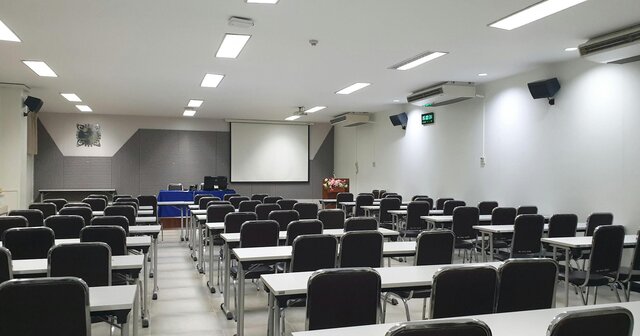
Last year, 66.1% of students in the Detroit Public Schools Community District were chronically absent, meaning they missed at least 10% of the school year’s days. The number of chronically absent students went down slightly compared to the prior year, but it remains 22.2% higher than in the 2019-20 school year.
The problem of chronic absenteeism is especially acute in Detroit and other urban districts. Students who are chronically absent are less likely to reach academic milestones, keep up with their peers or graduate from high school on time.
One key to ensuring academic success and reducing absenteeism is to provide families with a variety of educational options. But the state is moving in the opposite direction.
Despite Michigan’s progress in recovering from pandemic-related absenteeism rates, the state is unable to reach or improve upon pre-pandemic levels, especially in urban areas. Districts that serve a higher proportion of low-income students struggle more to keep students in school and have worse academic records.
Various factors influence student attendance, including mental health issues. Students may also be deterred from attending class if they experience bullying or harassment. Some factors, however, disproportionately affect lower-income families. Many students need to stay home to care for younger siblings, while sick or incapacitated parents are often unable to take their children to school.
Empowering parents with access to better educational options can improve their children’s attendance and academic outcomes. Michigan does give parents some options. The state’s Schools of Choice program allows parents to go beyond their resident district’s boundaries to select a public school that’s a better fit for their children. Parents interested in transferring their kids to the Oxford School District, for example, can do so as long as they live in a neighboring district or intermediate school district, provided the district has openings.
Many parents also choose to send their kids to charter schools because they offer a setting that fits their family’s needs. Charter schools especially improve academic outcomes for students from low-income and minority backgrounds. These urban districts are more likely to have unreliable or insufficient school transportation. Bus routes in the Detroit Public Schools Community District are limited, for example, and many families don’t own cars. Expanding available school options helps families find ways to get their kids to school every day.
Online schooling alternatives can also help students avoid chronic absenteeism. Many students choose virtual schools because social or health issues make it challenging for them to attend an in-person school. Cyber charter schools serve a higher proportion of at-risk students than most conventional public schools. Students who attend these schools often overcome many of the barriers that prevent them from attending classes.
Michigan can learn from the ways other states give parents still more choices. School choice programs such as education savings accounts and tax-credit scholarships give parents access to more educational options. With more options, parents are more likely to find a school that’s a better fit for their kids. When parents are in the driver’s seat, they can combat obstacles to regular school attendance.
Chronic absenteeism still afflicts the state’s public school system. Ensuring parents have educational options is a key part of the solution. Policies that empower disadvantaged families to access the best school for their children would be even better.
Permission to reprint this blog post in whole or in part is hereby granted, provided that the author (or authors) and the Mackinac Center for Public Policy are properly cited.
Get insightful commentary and the most reliable research on Michigan issues sent straight to your inbox.

The Mackinac Center for Public Policy is a nonprofit research and educational institute that advances the principles of free markets and limited government. Through our research and education programs, we challenge government overreach and advocate for a free-market approach to public policy that frees people to realize their potential and dreams.
Please consider contributing to our work to advance a freer and more prosperous state.

Donate | About | Blog | Pressroom | Publications | Careers | Site Map | Email Signup | Contact